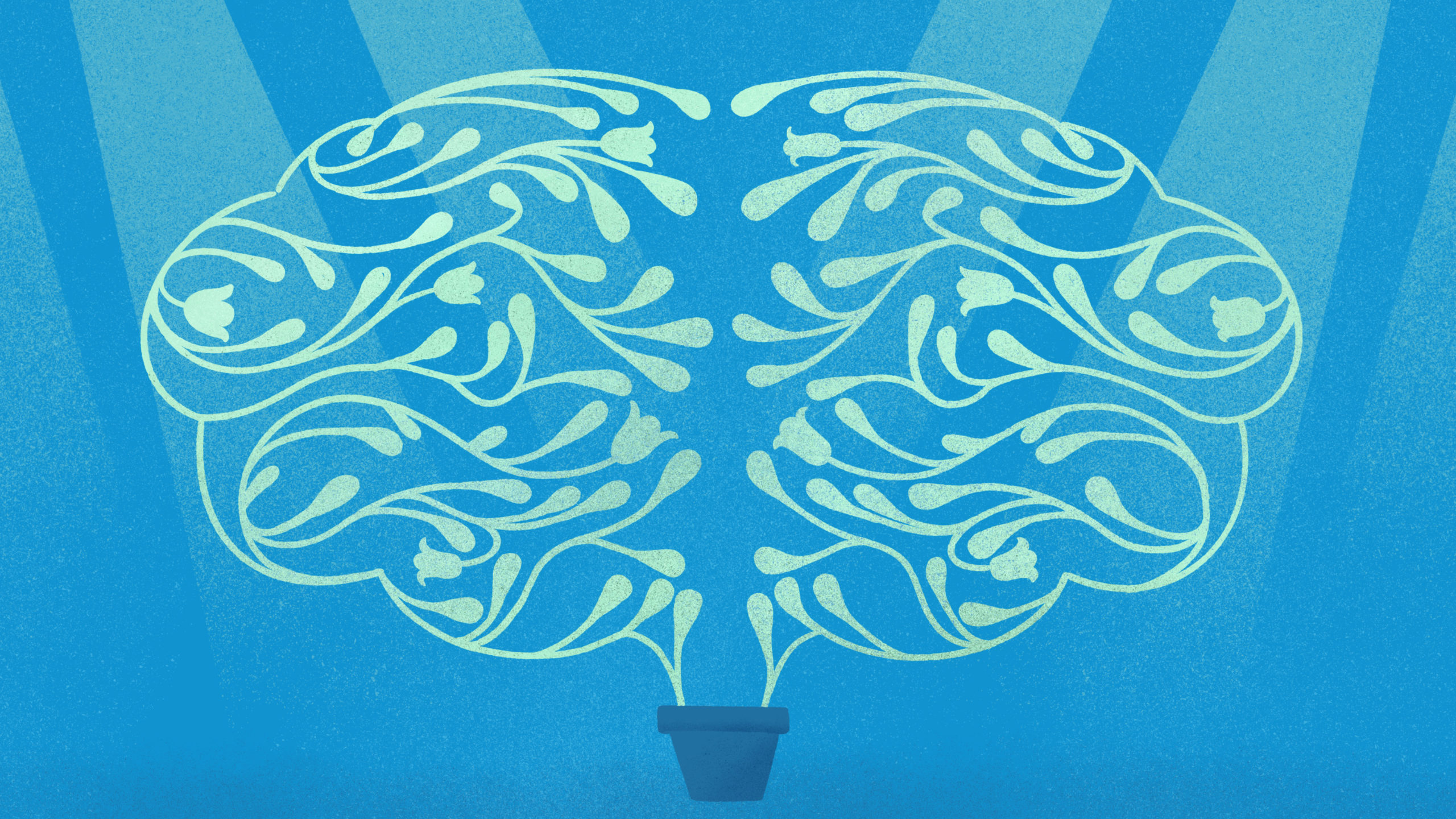
How to Improve Your Mental Health with Sunlight, Water, & Plants
Let’s be honest right from the start — there’s a lot of chaos and stressors coming into our lives from all angles these days.
There can be times when it feels relentless. The news cycles. The doom scrolling. Inflation. Our kids. Our jobs. Trying to maintain a healthy diet that still tastes good. All of it rolled into one. It stands to reason that our collective mental health has taken a beating.
It is time for a fresh, deep breath and to practice some self-care — with plants!
There are so many ways to cultivate healing within yourself. And a few of the simplest yet best ways we can improve our ongoing, overall mental health are getting some sunshine, staying hydrated, and getting out into the garden.
Even with all the chaos, if you add more of these things into your routine, you’ll see how they can bring a wave of calm back to your days.
The Benefits of Plant Therapy
If you’ve never cared for a plant, it can be one of the most rewarding experiences — especially when it’s something you cultivated from seed.
A crossover study between two research groups in Korea and Japan found why we feel such a strong connection to the plants we grow. The scientific study results showed that there is a bacterium in plant soil called Mycobacterium vaccae that triggers the release of serotonin, which we know can alleviate feelings of depression.
How Plants Improve Our Mental Health
Sure, plants provide a healthier environment by removing carbon dioxide and other air pollutants, but beyond that, there’s a sense of responsibility that comes with raising a plant. As the plant grows, your mood and outlook might begin to change.
Over time, a sense of joy replaces the responsibility, which is incredibly gratifying.
There’s also a spiritual connection between raising plants and improved mental health. Spending time in your garden can help you drop into a relaxed spiritual state, breathe easier, and connect with nature.
Navigating First Time Plant Parenthood
It might sound strange, but being a plant parent is really a good way to look at having plants in your life. Plants are alive and do require any number of specifics, from food and water to sunlight, in order to be their best self. And when your plant is its best, you are closer to your best — it’s a symbiotic relationship.
One thing you want to do as you step into your new role is set yourself up for success. The best way to do that is to get more hardy, low-maintenance plants that are most likely to survive your learning curve of cultivating plants.
3 Great Plants for Beginner Growers
The idea of raising plants can be daunting for beginners.
Perhaps you’ve tried in the past with less successful results or just never considered it. When you first start caring for plants, you should set yourself up for victory by starting with plants that are, for lack of a better phrase, hard to kill.
Plant #1: Snake Plants
Snake plants are a great option for beginner gardeners! Their pretty, elongated leaves can survive on little water and with little direct sunshine. They are basically fool-proof starter plants. Snake plants are also known for their air purification abilities, and they can rid your home’s air of micro-pollutants that can affect your sleep and mood.
Plant #2: Jade Plants
Another excellent option is a jade plant. These plants are natural humidifiers, which makes them excellent winter companions for dry indoor air. However, they do have some requirements to keep their health, such as lots of direct sunlight. All things considered, the rules of growing jade plants are pretty simple, and they don’t require a lot of maintenance.
Plant #3: Golden Pothos
The golden pothos is a fun plant to grow! It’s a type of ivy that will thrive on top of any surface, and its waxy green and yellow-tinted leaves are perfect for water absorption. These plants can handle any condition with little attention. Yet they look so vibrant when cared for they can really inspire you to add additional plants to your home.
There are many more plants great for beginners if you’re looking for some. Ask anyone at your local garden shop, and they will gladly help you locate something that will thrive under your stewardship.

The Greatness Mindset
Learn the secrets of some of the greatest minds in the world. Unlock the power of your mind and live your best life today.
Learn MoreThe Science of a Sunny Disposition
There’s a moment of pureness watching a flower turn toward the sun.
It’s similar to the way we turn our heads to let the rays hit our faces when we first step into the sun each day. It’s an innate relationship to the particular warmth — before the heat of it settles in, of course.
When we go extended periods of time with a lack of sunlight, it can have a drastic negative effect on our mood. But if you’re looking for a daily mood booster, spending some time in the sun with your garden or flowerbeds can make all the difference.
Additionally, it takes just fifteen minutes in the sun for our bodies to begin producing vitamin D, which is one of the most important vitamins because it helps produce calcium which keeps our bones strong.
Vitamin D is just the beginning of how sun exposure benefits us — there are more mentally effective reasons that add to the importance of sunlight to humans.
The Importance of Sunlight to Humans
One of the key reasons we need to get out in the sunshine is the production of melatonin, which helps lower stress reactivity. Being outside helps your body regulate melatonin without the need for supplemental doses.
As a result, our bodies are better equipped to naturally handle stress reactions when we get some time outside.
Being outdoors basking in the sun’s rays also increases your production of serotonin. This is a crucial part of our body chemistry that controls our mood. That’s why people often feel better after going for a walk or simply getting some fresh air outside.
Since the sun quite literally can improve your mood, what better excuse is there to get out into nature and nurture some plants?
The Key to Good Hydration is Growing in Your Garden
Making sure you consume enough water each day is crucial to maintaining a baseline of good feeling and functioning body systems. There are people who hate drinking water; for some, it’s the lack of flavor, while for others, it’s just ingrained in them to not reach for water when thirsty.
If you’re one of those people who don’t find the idea of drinking water particularly appealing, don’t worry! There are ways to stay hydrated without drinking glass after glass of water.
In fact, you’re already on the path to better hydration if you’re growing your own veggies. Some of the most common fruits and vegetables are made up of up to 85% water, and vegetables such as radishes and spinach are made up of 95% water. What does this mean for you? It means you’re taking in loads of water when you eat your latest harvest!
In fact, you can get up to 3 cups of water from fruits and vegetables if you eat enough, and even if you drink enough water daily, extra servings of veggies will only do you good.
Can Dehydration Cause Depression and Anxiety?
Every system of the body needs water to function, and the brain is no different.
Here’s a fact that many may not be aware of: 75% of our brain tissue is water — that means maintaining proper hydration is crucial to keep your brain happy. Depression and anxiety have links to dehydration because of how much of those issues are related to brain function.
Now, we know that depression and anxiety are two complex issues rooted in different causes for different people. But ensuring that you have proper hydration will definitely help boost your mood and prevent depressive episodes.
Dehydration and Overall Mental Health
Dehydration drains energy from your brain. It impedes the production of serotonin, which can add internal stress to your day without you noticing it pile up.
Stress in the body is primarily caused by dehydration, and it’s a dangerous cycle in your body.
To compensate for a lack of water in the body, your adrenal gland starts to produce extra cortisol, which is the stress hormone. If the process happens frequently, it can exhaust your adrenal gland, draining more energy from your body and making you more dehydrated.
Water doesn’t just physically restore energy to your body — it also works on a more connected level with your mind. Drinking water has been shown to have calming properties and can provide a sense of relaxation, which may alleviate a layer of depressing or anxious feelings.
Join In 200 Million+ On The Journey to Greatness
Growing House Plants Can Help You Breathe Easier
There is no limit to the amount of self-care that you can and should do. If you feel like you already get outside, stay hydrated, and love plants like Mother Earth herself, then maybe you should incorporate some awesome house plants that promote a healthier indoor atmosphere.
Plants Are Natural Dehumidifiers
Have you noticed that you often have a congested nose without reason? Or that maybe it feels like you’re not always breathing at full capacity? This can potentially be caused by the air quality in your living area.
Improper humidity levels do more than make us uncomfortable and sweat. They can also cause dry skin, headaches, and even respiratory problems. One way to defeat the problem of humidity in your home or office is to add some indoor plants.
There are certain indoor plants that are natural dehumidifiers. These plants absorb water through their leaves and regulate moisture levels in the air through a process known as transpiration.
Some great examples of dehumidifying indoor plants are spider plants, bamboo plants, English ivy, and Boston ferns. And if you’re interested in a plant that flowers, consider lilacs and peace lilies — they are excellent dehumidifiers.
Turn to Plants and Turn Off Tech
A modern aspect of self-care is to monitor our technology usage. Studies have shown how blue light emitted from our devices can affect our circadian rhythms, which determine our sleep schedule.
And even if your tech habits don’t affect your sleep, the time spent scrolling and checking updates on your devices has the potential to hurt core emotional responses — desensitizing us and disconnecting us from ourselves.
If you’re looking for a way to turn the time that you scroll into a productive, mood-boosting alternative, start a home garden project to build a better home for your plants. Take a chance with a more high-maintenance plant that you have to learn about, and invest time and effort to really make sure it thrives.
Give yourself a break from your phone, tablet, and the internet in general even.
And if you don’t have a lot of space, consider cultivating an indoor herb garden. Herbs can be cultivated in any size living space because they don’t take up a lot of room. Additionally, herb gardens are fairly easy to manage, and you can reap the incredible reward of using them in your cooking.
You deserve a more rewarding experience as part of your day, even if it’s just more time spent watering and connecting with your plant life. It’s good for the soul and provides a level of nourishment that we need to maintain proper mental health.
A Greener You Is a Better You
Raising plants is incredibly rewarding, and even if you don’t notice the benefits at first, you will over time.
Between tending to them, monitoring their growth, and seeing if they get enough or too much sun, there’s a reward in it that makes it all worth it. And if you’re raising a garden full of vegetables, then you are also boosting your water intake when you eat your haul.
It’s a wonderful circle of support being a plant parent, and remember that caring for your plants is also a great metaphor for your mental health in general.
The first step to proper mental health is understanding that you don’t need to pull every weed out of your garden all at once; it’s only a few simple changes and additions to your days that can really have long-term benefits for your whole life.
You can take action to improve your mental health right now — take a break to focus on your breathing or drink a small glass of water. And just like that, your garden of self-care will begin to bloom.
Greatness Authors
Greatness Authors is a collection of writers, thinkers, curiosity experts, and students of the world who are committed to bringing you the most up-to-date, impactful, and inspiring information surrounding Greatness topics.

Do You Have to Be a Morning Person to Be Successful? Here’s What Both Sides Have to Say

9 Reasons You’re Tired All the Time & How to 10x Your Energy

How to Have a Healthy Romantic Relationship Even if You Share Different Beliefs

The 7 Best Vitamins to Naturally Promote Better, Uninterrupted Sleep According to Shawn Stevenson

The Science of Forming Healthy Habits & Letting Go of Bad Ones, According to Author James Clear










